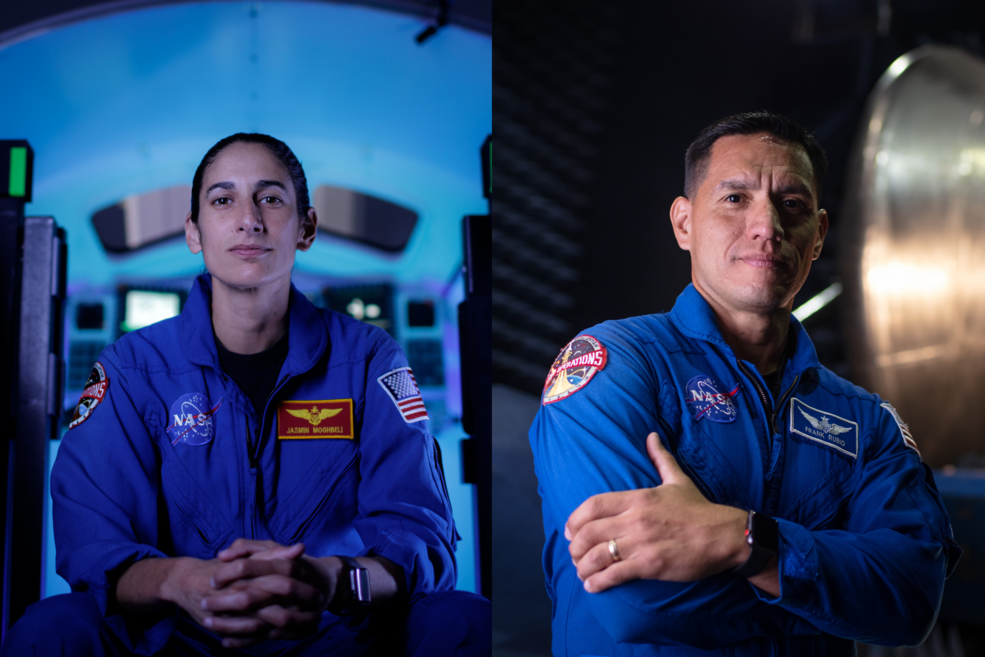Georgia, Texas Students to Hear from NASA Astronauts Aboard Station
Sep 1, 2023 / NASA – Education News / Story by NASA

Students from Georgia and Texas will have separate opportunities next week to hear from NASA astronauts aboard the International Space Station.
The two space-to-Earth calls will air live Wednesday, Sept. 6, and Thursday, Sept. 7, on NASA Television, the NASA app, and the agency’s website.
At 10:05 a.m. EDT on Sept. 6, NASA astronauts Jasmin Moghbeli and Frank Rubio will answer prerecorded questions from students in Olmito, Texas. The event, hosted by the South Texas Astronomical Society, will engage students from the predominantly Latino community of Brownsville, Texas. Retired NASA astronaut Mike Fossum will offer closing remarks.
Media interested in covering the event must RSVP no later than 5 p.m. Tuesday, Sept. 5, to Dr. Anysia Treviño at 956-547-4113 or dratrevino@bisd.us.
At 10:25 a.m. on Sept. 7, Moghbeli and Rubio also will answer prerecorded questions from students at Dames Ferry Elementary School in Gray, Georgia. Through this event the school hopes to expose rural students to STEM and aerospace opportunities.
Media interested in covering the event must RSVP no later than 5 p.m., Sept. 6, to Christin White at 478-414-6121 or mary.white@jones.k12.ga.us.
For more than 22 years, astronauts have continuously lived and worked aboard the space station, testing technologies, performing science, and developing the skills needed to explore farther from Earth. Astronauts living in space aboard the orbiting laboratory communicate with NASA’s Mission Control Center in Houston 24 hours a day through the Space Communications and Navigation (SCaN) Near Space Network. Important research and technology investigations taking place aboard the International Space Station benefit people on Earth and lay the groundwork for future exploration.
As part of Artemis, NASA will send astronauts to the Moon to prepare for future human exploration of Mars. Inspiring the next generation of explorers – the Artemis Generation – ensures America will continue to lead in space exploration and discovery.
See videos and lesson plans highlighting International Space Station research at:
-end-
Katherine Brown
Headquarters, Washington
202-358-1288
katherine.m.brown@nasa.gov
Sandra Jones
Johnson Space Center, Houston
281-483-5111
sandra.p.jones@nasa.gov